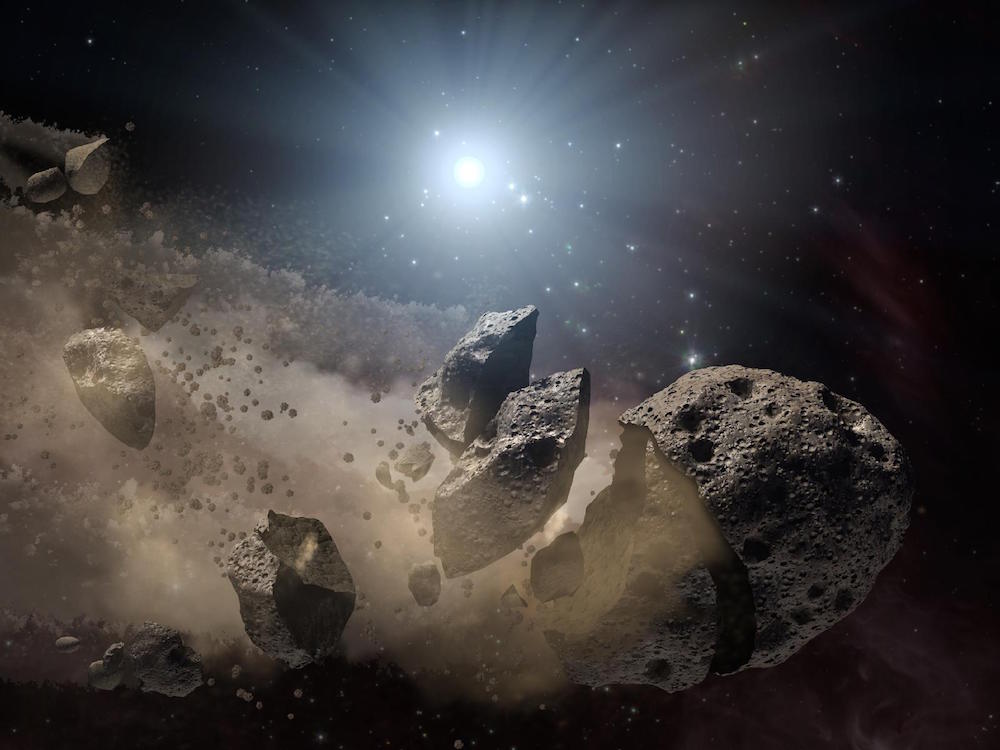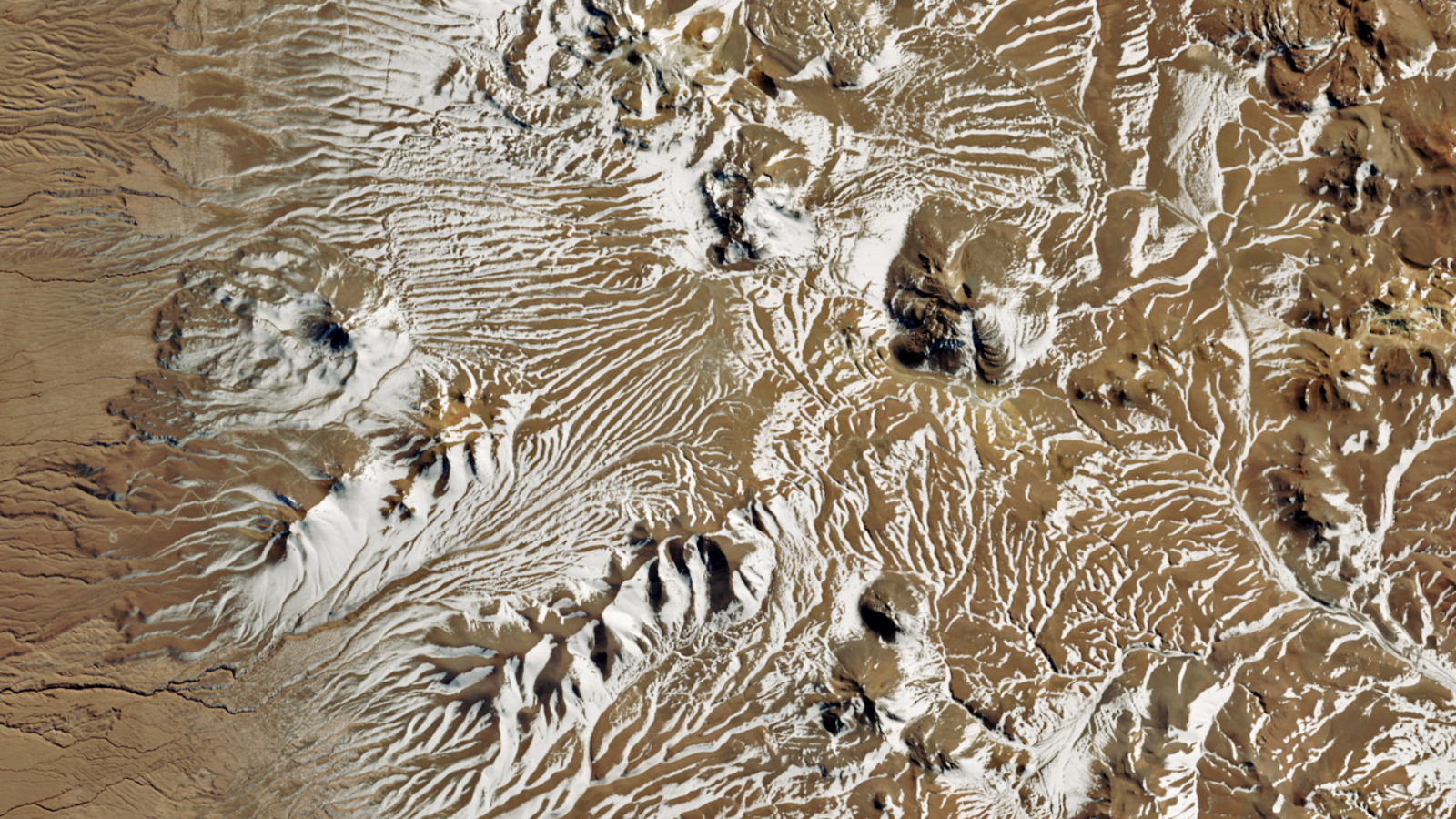Death by Meteorite? India Tragedy May Be 1st in Recorded History

Update on Wednesday, Feb. 10, at 9:12 a.m.: NASA officials said in a statement that online photos of the event are more consistent with a land-based explosion than a space rock, as reported by the New York Times.
For the first time in recorded history, a meteorite is reported to have killed a person.
The incident happened Saturday (Feb. 6) when an object, thought to be a meteorite, hit a college campus in Tamil Nadu, a state in southern India, the Wall Street Journal reported. The impact killed a man and injured three others, the WSJ said.
Officials found a 4-feet-deep (1.2 meters) crater in the ground that contained "bluish black" rock fragments, G. Baskar, the college's principal in Tamil Nadu's Vellore district, told the WSJ. [When Space Attacks: The 6 Craziest Meteor Impacts]
But NASA has yet to confirm whether the mysterious object is indeed a meteorite. "Our Planetary Defense Coordination Office is aware of the reports and is looking into it," said Laurie Cantillo, a NASA spokeswoman. "So at this point the report is unconfirmed."
The impact occurred at 12:30 p.m. local time (2 a.m. E.T.) Saturday, when a bus driver was standing on the grass near the college's cafeteria, according to Reuters. The driver, a 40-year-old man named Kamaraj, was killed, and a student and two gardeners standing nearby were injured, the WSJ reported.
"There was a noise like a big explosion," Baskar told the WSJ. "It was an abnormal sound that could be heard till at least 3 kilometers [about 2 miles] away."
Get the world’s most fascinating discoveries delivered straight to your inbox.
The explosion broke windows in neighboring classrooms and cars, and prompted college officials to cancel classes until Wednesday (Feb. 10), the WSJ said. Meanwhile, J. Jayalalithaa, the chief minister of Tamil Nadu, announced that the driver's family would receive 100,000 rupees ($1,470) and those injured would get 25,000 rupees ($368) in compensation, the WSJ reported.
If scientists confirm that a meteorite — and not space junk or other debris — led to the man's death, this would be the first scientifically proven meteorite fatality in modern times, NASA said.
"It is so rare, there has never been a scientifically confirmed report of someone being killed by a meteorite impact in recorded history," Lindley Johnson, NASA's Planetary Defense Officer, told Live Science in an email. "There have been reports of injuries, but even those were extremely rare before the Chelyabinsk event three years ago."
A meteorite wiped out the non-avian dinosaurs about 65 million years ago, leaving the gaping Chicxulub crater in Mexico; and other meteorites have hit Earth throughout the years, including the 2013 Chelyabinsk meteorite that injured about 1,000 people. However, most meteorites land in remote places, including a 3.5-lb. (1.6 kilograms) rock researchers found in the Australian Outback shortly after it crash-landed on Earth on Nov. 27, 2015.
There is evidence that space rocks once bombarded Earth and the moon about 3.9 billion years ago, according to NASA's Jet Propulsion Laboratory (JPL). But "since that time, cratering appears to have continued at a much slower and fairly uniform rate," the JPL said.
Comets and asteroids continue to pockmark Earth when they become meteorites, or space rocks that survive the plunge through the planet's atmosphere and land on Earth. But most meteors burn up high in the atmosphere, leaving streaks that people call shooting stars.
However, larger space rocks do sometimes make landfall. People saw a fireball streak across the sky from Kentucky to New York on Oct. 9, 1992. Researchers found the remains, a 27-lb. (12 kg) meteorite that punched a hole in a parked car, in Peekskill, New York, the JPL reported.
There are ancient Chinese records of meteorites causing human deaths, but there have been no human fatalities reported in the past 1,000 years, the JPL said. Still, meteorites have injured some people, including Alabama housewife Ann Hodges, who awoke from a nap on her couch when a 3-lb. (1.4 kg) meteorite fell through her house and bruised her hip.
"An individual's chance of being killed by a meteorite is small," the JPL said. "But the risk increases with the size of the impacting comet or asteroid."
It may be too late for the dinosaurs, but today, scientists are mapping near-Earth objects to learn which space rocks pose the most danger to Earth, the JPL said.
Follow Laura Geggel on Twitter @LauraGeggel. Follow Live Science @livescience, Facebook & Google+. Original article on Live Science.

Laura is the managing editor at Live Science. She also runs the archaeology section and the Life's Little Mysteries series. Her work has appeared in The New York Times, Scholastic, Popular Science and Spectrum, a site on autism research. She has won multiple awards from the Society of Professional Journalists and the Washington Newspaper Publishers Association for her reporting at a weekly newspaper near Seattle. Laura holds a bachelor's degree in English literature and psychology from Washington University in St. Louis and a master's degree in science writing from NYU.


